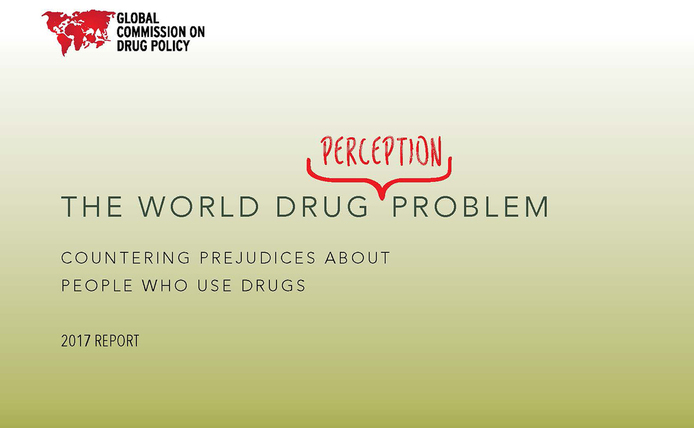In 1988 the U.S. Congress passed with bipartisan support the Anti-Drug Abuse Act. This omnibus bill cemented the country’s punitive and racially disparate treatment of people who use drugs (PWUD). To assist in the fight against drugs, which Americans at the time considered one of the greatest threats facing the nation, the package of legislation created the Office of National Drug Control Policy (ONDCP).
The ONDCP is situated within the executive branch and reports directly to the president. The agency sets policy goals and funds and coordinates drug enforcement efforts. For most of its existence, the ONDCP has dedicated the bulk of its resources to supply-side activities, both at home and abroad, with comparatively little focus on treatment and virtually none on harm reduction.
This imbalance may be changing. Today, the overdose epidemic stands as tragic and undeniable proof of the drug war’s failures. Now the American public and some policymakers are reconsidering the appropriate response to drug use and addiction. As a U.S. senator, President Biden played a key role in crafting and passing anti-drug laws, including the bill that created the ONDCP. As President, Biden has declared that improving racial equity and reducing the harms of substance use are drug policy priorities for his administration.
This is a welcome shift in tone, one from which corrective action hopefully follows. In July 2021, as part of its prioritisation of racial equity, the ONDCP requested information from the public regarding the extent to which ONDCP policies “perpetuate systemic barriers to opportunities for underserved communities and individuals.” (My full comments are here.) Missing from this request was an acknowledgment that the ONDCP actively helped create the “barriers” it now seeks to address by supporting punitive drug policies that disproportionately targeted Black, Hispanic/Latinx, and Indigenous individuals and communities for arrest and incarceration. The ONDCP and its partnership agencies must take responsibility for the failures of the War on Drugs. This is necessary to correct the false belief that prohibition is an effective approach to drug use and to restore trust in the government among citizens and other nations harmed by American drug war policies.
Less than a year into the Biden presidency, there is still time for the administration and the ONDCP to deliver on promises to improve racial equity and reduce drug use and policy-related harms. But events to date suggest a reluctance to commit fully to reform. President Biden signalled support for cannabis decriminalisation during his campaign, but has not moved on the issue since assuming office, and his pick to lead the Drug Enforcement Administration (DEA), Anne Milgram, has spoken out against decriminalisation. Although the ONDCP requested more funding for demand reduction than supply-side interventions for 2021/22, 42.5% of its total budget ($17.5 billion) is still directed at the latter, with a 6.3% increase to DEA’s domestic law enforcement budget.
The ONDCP also recently requested that Congress make permanent a temporary class-wide ban on all fentanyl-related substances and designate them as Schedule I substances, which are defined as having no medical value and high abuse potential. DEA claims it needs the class-wide ban to prosecute people who sell and manufacture fentanyl, a powerful synthetic opioid, but prior evidence shows this is not the case. Punitive enforcement can do more harm than good; research shows that law enforcement seizures of fentanyl are associated with an increase in overdose deaths, perhaps because street-level market disruptions cause PWUD to turn to less trusted sellers. Drug bans also increase the risks of illicit substances. The proliferation of fentanyl is itself a market adaptation to prohibition that demonstrates the futility of supply-side interventions that do nothing to address the driving force behind drug trends—demand.
Of course, the move from a drug policy paradigm based on prohibition to one grounded in harm reduction and human rights will not happen overnight. The ONDCP may be trying to navigate this transition with what it calls a “consensus” approach. For instance, while the agency supports the DEA-requested fentanyl ban, some of its other recommendations to Congress edge toward reform, such as asking lawmakers to ease restrictions on research for Schedule I substances and analyse the impact of the fentanyl ban. But the ONDCP’s request that Congress add more substances to Schedule I even as its other recommendations acknowledge serious shortcomings to its scheduling system is an incongruous approach that favours law enforcement. At the very least, the ONDCP should ask Congress to improve the scheduling rules before adding more drugs.
Satiating the voracious American appetite for drugs will require substantial investment in the long-neglected areas of education, economic opportunity, racial and social equity, and health care access, to name a few. As elected leaders engage in a painstaking struggle to meet these societal challenges, drug policy in the meantime should focus on preventing harm and death from epidemic drug use. Decades of evidence tell us that prohibition will not achieve this. The government should instead make drug use safer by offering sterile use equipment, drug checking services, overdose prevention drugs, and low-barrier treatment services. It should address racial disparities caused by drug policy through law reform and financial support to communities harmed by the War on Drugs—what some have referred to as drug war reparations. The ONDCP of 30 years ago, or even just three years ago, would not have tried to balance prohibition with concerns for equity and harm reduction. In this regard, the office has improved. But government actions so far have been insufficient to guide the nation toward more humane, effective, and equitable drug policies.
Katharine Neill Harris is the Alfred C. Glassell, III, Fellow in Drug Policy at Rice University’s Baker Institute for Public Policy. She supports policy reforms that treat drug use as a public health issue and explores alternatives to incarceration and greater harm reduction services. Her research can be found here, and Twitter link here.


